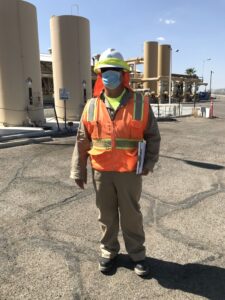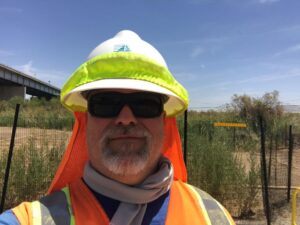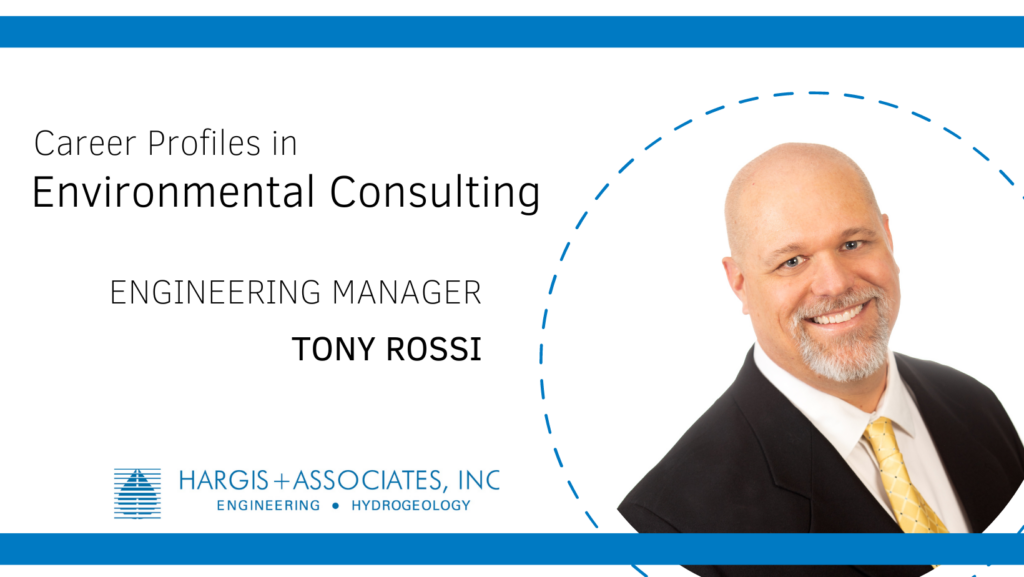In the complex world of environmental consulting, engineering managers play a pivotal role. Overseeing an entire Engineering Department, these professionals bear the responsibility of nurturing future engineers, assuring projects are executed proficiently, and maintaining client relationships.
Tony Rossi, an esteemed Engineering Manager at Hargis + Associates, stands out as a testament to dedication, growth, and perseverance in this field. Having paved a career path from a curious college intern to the leader he is today, Rossi embodies the values Hargis holds dear.
In this installment of our Careers in Environmental Consulting series, Tony offers a deep dive into his journey, showcasing the ins and outs of remediation engineering, the challenges he faced, the lessons learned, and the wisdom he has garnered over the years.
What is the typical role of an Engineering Manager?
In simple terms, the Engineering Manager oversees the Engineering Department. The most important responsibility is supervising and mentoring the engineers. At Hargis, we firmly believe in providing a rewarding career path for our engineers. A student can launch their career with Hargis while they are still in college, or just graduated, with a paid internship. From there, an Intern moves up to Staff Engineer (typically up to five years of experience) and then Senior Engineer. A Senior Engineer typically has more than five years of experience and a Professional Engineer license. Each professional level has its own challenges.
Much of the daily work involves managing projects, budgets, client relations, technical staff, and technical documents in an efficient manner. There are formal and routine communications, technical memos, large reports, engineering specifications, cost estimates, proposals, standard operating procedures, work plans, and feasibility studies.
The Engineer Manager assures that the department is responsive to client requests, manages labor hours and costs to keep projects on or under budget, manages schedules to meet client and agency deadlines, and keeps technical documents clear and concise.
Environmental and Remediation Engineers can expect a variety of projects including environmental investigation, monitoring, and remediation of soil and groundwater at sites contaminated with hazardous materials. Remediation typically includes planning, coordination, engineering design, permitting, contractor selection, construction management and oversight, system startup, and transition to long-term operation and maintenance (O&M) of environmental remediation systems.
When working for an environmental consulting firm, remediation engineers often serve both public agencies and private industry clients. At Hargis, we have long-term partnerships with Native American tribal clients.
What career did you imagine for yourself as a child?
As a child, I loved playing with Legos. When it came time pick a college major in high school, I matched up Legos and engineering. It seemed to be a logical fit. Things have turned out pretty well.
What career did you plan to pursue when you began college?
As I was working on my bachelor’s degree in environmental engineering, I thought I would be working at a municipal water or wastewater treatment plant.
What drew you to environmental consulting?
When I first graduated from school, I applied to any job that had the word “environmental” in the description. Once I landed a consulting job, I’ve enjoyed it from the very beginning. I appreciate working on varied projects and being able to react quickly to changing situations.
For example, I helped construct and operate a small groundwater treatment system in Long Beach California. After several years, a previously unknown large contaminant plume area was discovered on an adjacent property. The scope of the project ballooned to include a large pipeline network and treatment system expansion which I managed. The scope of the project increased significantly.

What was your first job in Engineering?
My first job was working for Bechtel in San Diego on the Navy C.L.E.A.N. project as a Staff Engineer. The Comprehensive Long-Term Environmental Action Navy (CLEAN) project is part of the Navy’s Environmental Restoration Program which identifies, investigates, and cleans up former waste disposal sites on military properties My work involved environmental studies required to support remedial decision-making and designs for Navy and Marine Corps contaminated sites under remediation in accordance with the CERCLA and/or the RCRA.
I stayed there for four years. During that time, I was the lead and supporting author on various technical documents (monitoring reports, work plans, feasibility studies, remedial investigations) and was involved in a wide range of field and office work including laboratory analytical data management, verification, review, and analysis, preparation of human-health risk assessment calculation packages, soil and groundwater sampling fieldwork, remediation pilot test fieldwork, cost estimating, and health & safety support.
How did you end up in your current role?
To become a certified Professional Engineer (PE), you have to complete a Bachelor’s degree in an accredited engineering program, pass the Fundamentals of Engineering (FE) exam, work under the supervision of a PE-licensed engineer for at least four years, then pass the PE Exam.
In the beginning, I tried to pass the PE exam with little effort hoping I would do well. Later, I realized that this exam was a bigger commitment. I decided to buckle down, put my life on hold, and really study hard. Once I did that, I passed with no problem.
I landed at Hargis on the referral of one of my best friends from the San Diego State University School of Engineering who was working Hargis. When there was an opening for a senior engineer position, he told me, and I applied.
Moving from Senior Engineer to Engineering Manager was a long journey. It involved managing projects and keeping them on budget and on schedule, gaining experience in the nuances of client relations, and refining my remediation engineering technical skills. Another aspect was successfully managing engineering personnel- keeping morale up, preparing and conducting annual evaluations, keeping people busy and billable, and mentoring my team.
What kind of things do you do in your current role?
It’s a good mix of technical work supporting various projects, some corporate duties managing the engineering group, assisting the marketing group, attending networking events, proposing on new work, and forming teaming relationships with other companies.
Over the years, I’ve worked on various sites that were impacted by one or more hazardous materials. The most common contaminants I’ve worked with are TCE and PCE. Other contaminants have included: PCBs, 1,4-dioxane, metals, PFAS, automotive fuels and additives, aircraft fuels and additives, dioxins/furans, VOCs, SVOCs, hexavalent chromium, methylene chloride, chemical munitions, and perchlorate.
Prior to becoming Engineering Manager, my business development and marking experience was minimal. At that time, we were lucky, we had long-term and well-established clients. There wasn’t a strong need for business development. Two years ago, my responsibilities increased to include the preparation of proposals, marketing materials, and business development tasks.
I pride myself on making long-term friends and staying in touch with former co-workers going back to the beginning of my career. Keeping these relationships active has helped in my current position. I’m a member of several professional organizations including San Diego Environmental Professionals, Society of American Military Engineers, the American Society of Civil Engineers, and the Association for Environmental Health and Sciences Foundation and routinely attend monthly meetings and social events. My current professional development undertaking is earning my State of CA Class A General Contractors License.

Talk about teaming with other companies
Hargis has teamed with other companies in the past, has current teaming arrangements with several companies, are in progress on establishing formal teaming arrangements with new companies, and have teamed with other companies on proposals. We are a certified Small Business which can be attractive to larger companies looking for small business teaming arrangements. Our remediation engineering and hydrogeology expertise can be of benefit to other companies who lack these niche services.
What is your favorite part of this job? How about the environmental services industry?
My favorite task is construction oversight on a project I helped design. You get to see your design come to life. There are many challenges along the way and many small problems to solve, however, very rewarding when construction is complete.
For example, I managed the expansion of an existing groundwater treatment system in Long Beach CA from start to finish. New groundwater extraction wells were installed, the extraction well pipeline network was expanded, the treatment system compound was enlarged, the automated control system was replaced, and a new sewer discharge connection was constructed. I oversaw system startup and then managed long-term O&M for many years.
What degrees/training/certifications were required for your career path?
For an engineer, I consider the Professional Engineer (PE) license to be the most career-impacting. Once you have a PE license, especially a State of California PE license, many opportunities will open to you.
What traits and/or habits have helped make you successful?
In general, I’m an analytical and organized person. These qualities lend themselves well to the job duties of an engineer.
Were you provided with advice or mentorship along the way? If so, can you share how it helped?
Yes, during all phases of life (parents, extended family, teachers, Boy Scouts, college professors, senior staff at work, Dr. Hargis, etc.). It’s important to listen, recognize when you’re getting good advice, absorb and remember it, and incorporate it into your daily life.
What would you tell other people considering a career in environmental services?
All jobs have highs and lows. Generally speaking, I’ve been happy with my choices. The environmental industry is very broad, and anyone should be able to find their niche with a little effort.
What resources would you recommend to them?
Find a mentor you can trust. Join environmental networking groups and get involved.
Does remediation engineering sound interesting to you?
If you are interested in pursuing a career in this field, connect with Tony on LinkedIn or reach out to him directly at TRossi@hargis.com.
Want to grow your career with a small, employee-owned consulting firm? Learn more about our specialty hydrogeology and environmental engineering firm and explore our current career opportunities at www.hargis.com/careers/.

